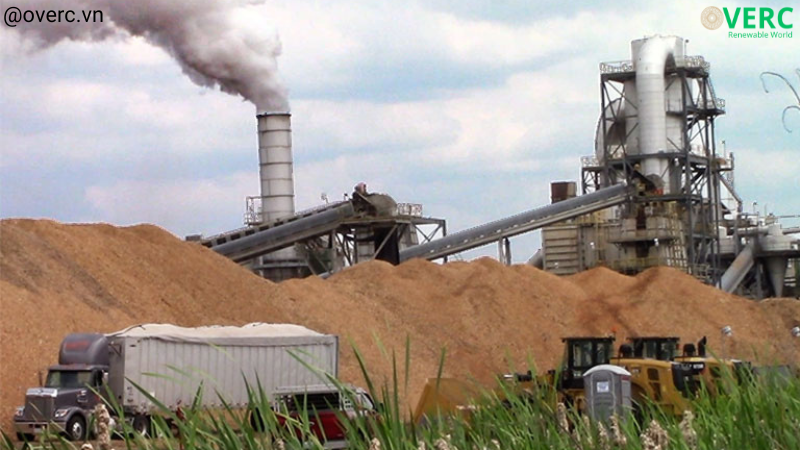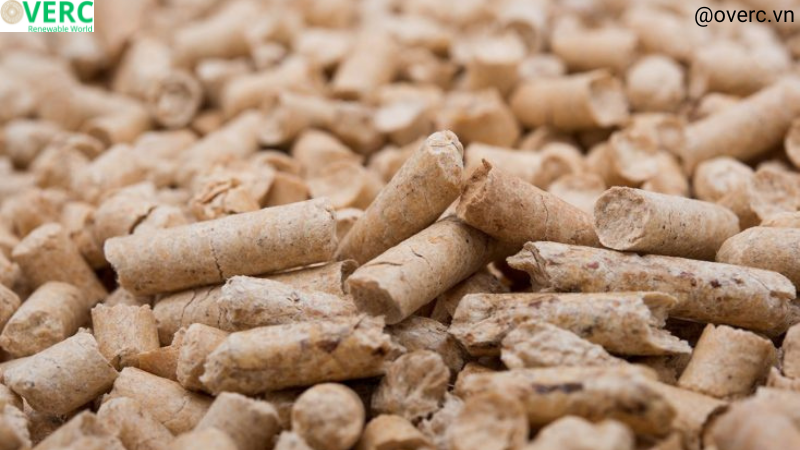
1. Current situation and trends of export and domestic markets
The policy of the EU bloc in switching from imported gas from Russia to using alternative raw materials, including wood pellets, is and will continue to have a great impact on the supply and demand of wood pellets in the world. As the second largest exporter of wood pellets in the world, Vietnam’s wood pellet industry will continue to be strongly affected by changes in the world’s supply and demand for this product.
In addition, the Korean and Japanese governments are continuing to make the transition from coal-fired power to clean power, including biomass power, so the demand for wood pellets in these countries will continue to increase in the future.
In addition, the Chinese government is also taking steps to switch part of its coal-fired power and heating systems to wood pellets. The demand for wood pellets in China will increase sharply in the future. Overall, the demand for wood pellets in the world market will continue to increase strongly in the future. This is a great opportunity for the Vietnamese wood pellet industry.
Currently, the amount of wood pellets produced in Vietnam is mainly for export. The amount of wood pellets consumed domestically is insignificant. However, this situation may change in the future. Currently, there are a number of companies considering the possibility of investing in biomass power production using wood pellets as input. The Government and ministries are currently making efforts to convert production and business activities to low-emission models, in order to fulfill the commitment to achieve zero net emissions by 2050.
In the future, if the Government encourages the priority of switching from coal to biomass power, the Vietnamese wood pellet industry has the potential to develop strongly in the domestic market. The Government should provide clear messages and policy directions to help businesses orient their long-term investments.
2. Export tax on wood pellets

Recently, the Government has considered the possibility of imposing an export tax on wood pellets. The tax rate proposed by the Government’s tax advisory agency is 5 or 10%. The reason why the tax advisory agency proposed the tax is because this agency considers wood pellets as a raw wood product using raw wood from planted forests as input and not deeply processed, so it should limit exports, in order to retain domestic raw materials.
However, the proposal to apply an export tax on this product has received many disagreements from many agencies and sectors, including the Vietnam Timber and Forest Products Association, the General Department of Forestry and the Vietnam Chamber of Commerce and Industry. The disagreements are based on the fact that the input material for wood pellets is mainly from waste and by-products of the wood processing industry. The Government is currently considering the proposal and the opinions of the parties. The final decision will be made by the Government in the near future.
The raw materials used to produce wood pellets are currently mainly waste materials from the wood industry. Applying the tax at the present time can not only cause waste of this raw material but also directly have negative impacts on the parties involved in the chain, including forest growers and small processing facilities.
The Government may apply an export tax in the future if it plans to convert domestic coal-fired power sources to bioenergy sources using wood pellets. However, if the tax is applied, the Government needs to introduce policy mechanisms to ensure that domestic wood pellet prices can compete with export prices. This will help minimize losses for businesses in the industry.
3. Value-added tax refund for wood pellet exporting enterprises

Currently, wood pellet exporting enterprises in particular and enterprises with exported wood products using planted forest wood in general are facing difficulties in implementing value-added tax refunds after export.
This difficulty is caused by the tax authorities’ suspicions of fraudulent and tax evasion by parties involved in the intermediary stages of the supply chain for these export products. The causes of this fraud are described in detail in another report prepared and published by the Forest Trends Research Team and the Timber Associations.
However, for wood pellet production enterprises using by-products of the processing industry including wood scraps, branches, tops, and bark, this input material source does not allow enterprises to convert to standards (e.g. m3 of wood) as required in current policies. This means that relevant policy mechanisms need to be adjusted in the coming time to suit the current input material situation of enterprises in the industry.
Note: The information in this article is for reference only and may change depending on the manufacturer and source of raw materials. For the most accurate information, you should consult experts, wood pellet suppliers or contact Overc.vn to answer your questions and problems related to wood pellets and wood chips.
Source:
- Goviet org
- Overc Team synthesise, analyse and write articles.
***
OVERC was established in Vietnam, which has 17 FTA (Free Trade Agreement).
Vietnam is one of the countries with the most FTAs in the world.
Our main activities are manufacturing and distributing Wood Pellets and Wood Waste. Our wood pellet products, which are made from Acacia veneer residual 100% or wood waste (logs, sawdust, wood chips, wood shavings,…), have been exported to many countries around the world such as Japan, Korea, EU, etc.
OVERC Co.,Ltd would like to wish you all the best at this time.
For more information on our products, please visit our website at OVERC.VN – Renewable World.